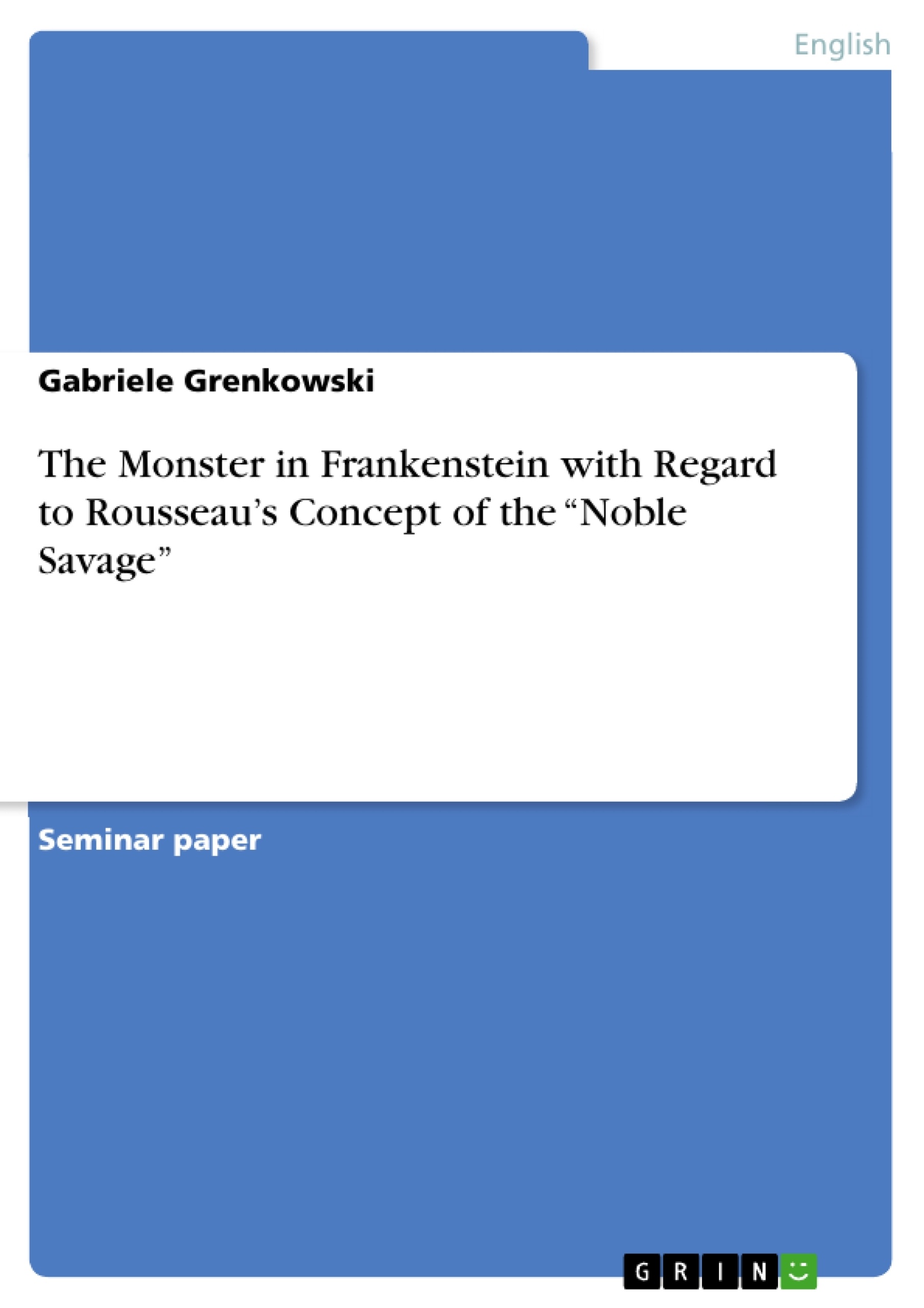This term paper deals with Jean-Jacques Rousseau’s concept of the “noble savage“ and the use of this concept by Mary Shelley as a main theme in her famous novel Frankenstein. In the first chapter of this paper, I will focus on the noble savage myth and explain what exactly is meant by the term. I will also explain Rousseau’s theories of a state of nature as found in his work A Discourse on the Origin of Inequality. Further, I will shortly confront Rousseau’s theories with a quite opposite world view, namely that offered by Thomas Hobbes in his works Leviathan and De Cive.
Table of Contents
- Introduction
- Rousseau's Concept of a “Noble Savage”
- Opposite Theory: Thomas Hobbes
- Frankenstein's Monster as a “Noble Savage”
- Arguments For Frankenstein's Monster as a \"Noble Savage\"
- The Monster's Transition From a “Noble Savage\" Into a Murderer
- Reference to Paradise Lost by John Milton
- Conclusion
- List of Sources
Objectives and Key Themes
This term paper explores the concept of the "noble savage" as presented by Jean-Jacques Rousseau and examines its application in Mary Shelley's Frankenstein. The paper aims to determine whether Frankenstein's Monster embodies the characteristics of Rousseau's "noble savage." To answer this question, the paper will analyze the novel, quoting relevant passages to support its conclusions.
- Rousseau's theory of the "noble savage" as a state of natural peacefulness
- The role of societal influence in shaping human behavior
- The contrast between Rousseau's and Hobbes's views on the nature of humanity
- The portrayal of Frankenstein's Monster as a complex character
- The potential for both good and evil in the human heart
Chapter Summaries
- Introduction: This chapter introduces the topic of the term paper, focusing on the "noble savage" concept and its relevance to Frankenstein. It outlines the structure of the paper and the main questions it aims to address.
- Rousseau's Concept of a “Noble Savage”: This chapter explores Rousseau's theory of the "noble savage," emphasizing his belief that humans in their natural state are peaceful and not inherently evil. It clarifies the origin of the term and its connection to Rousseau's work, specifically his "Discourse on the Origin and Basis of Inequality Among Men." The chapter also provides a brief overview of Rousseau's criticism of Thomas Hobbes's opposing philosophy, highlighting their different views on human nature and the role of society.
- Frankenstein's Monster as a “Noble Savage”: This chapter analyzes Frankenstein's Monster in light of Rousseau's concept, examining potential arguments in favor of classifying the Monster as a "noble savage." It explores the Monster's initial innocence and his gradual descent into violence and explores the influence of his rejection and isolation on his transformation.
Keywords
This paper focuses on the concepts of the "noble savage," Rousseau's philosophy of the state of nature, and the portrayal of the Monster in Mary Shelley's Frankenstein. The paper explores the complexities of human nature, the impact of societal influences on individuals, and the potential for both good and evil within the human heart. Key themes include the origins of violence and the ethical implications of scientific advancement.
- Quote paper
- Gabriele Grenkowski (Author), 2011, The Monster in Frankenstein with Regard to Rousseau’s Concept of the “Noble Savage”, Munich, GRIN Verlag, https://www.grin.com/document/189629




